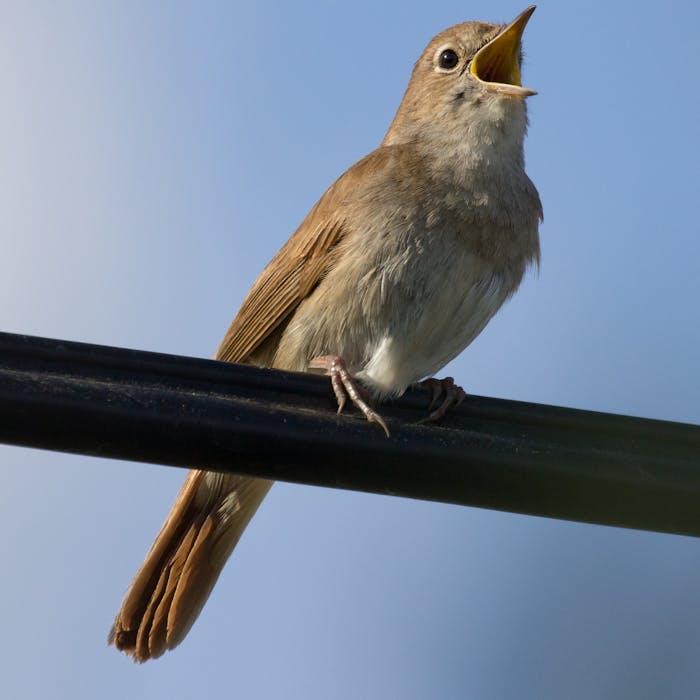
The nightingale - more likely to be heard than seen
Nightingales are the romantic focus of many famous British poems, songs and legends, and yet so rarely seen that they can appear to be fictional - or at least, to have disappeared from their traditional haunts. However, they still do exist, and are summer migratory visitors to south-east England.
The common nightingale is, to be frank, not that distinctive to look at, being plain brown above, except for the reddish tail. It is buff to white below. But the song of the nightingale has been described as one of the most beautiful sounds in nature, inspiring musical compositions, songs, fairy tales, opera, books, and a great deal of poetry. One of the most famous poems is John Keats' Ode to a Nightingale.
Nightingales are shy birds and rarely seen. They also mainly sing at night, though also perform during the daytime.. Quite scarce in Britain, they nest on the ground and are very conscious of intruders, so they prefer to be unnoticed in their nests.
Nightingales visiting Britain are estimated to have declined by 90 per cent in the last 50 years, thought to be due to a mix of factors, including climate change, and the reduction in dense woodland undergrowth in which they feed in and nest. They usually arrive in April and leave around August to September, wintering in central tropical Africa.
There are a number of woodland spots where nightingales are most likely to be found during their time in the UK, including Highnam Woods in Gloucestershire, Garston Wood in Dorset, Pulborough Brooks in West Sussex, and Brampton Woods and Paxton Pits, both in Cambridgeshire.
In the 19th century, birdcatchers caught large numbers of nightingales for the caged bird trade. Most quickly succumbed in captivity; those that survived until autumn often killed themselves, dashed against the cage bars as they tried to follow their migratory urge.
Further reading
Links to external websites are not maintained by Bite Sized Britain. They are provided to give users access to additional information. Bite Sized Britain is not responsible for the content of these external websites.
